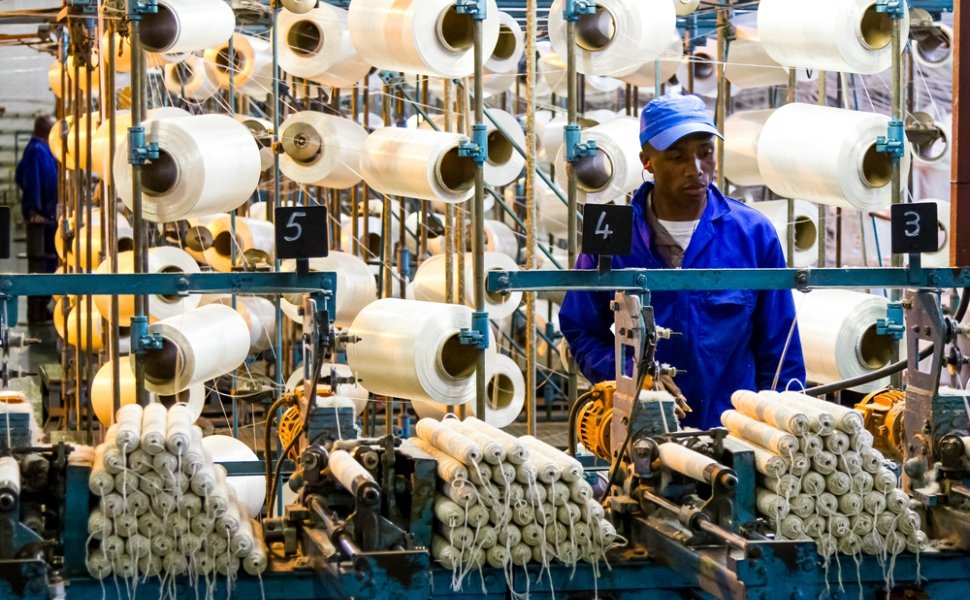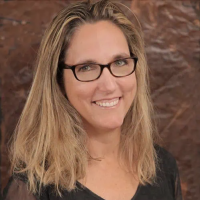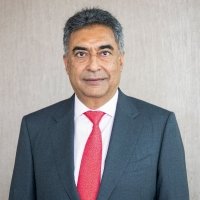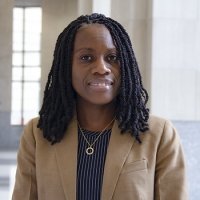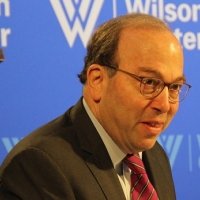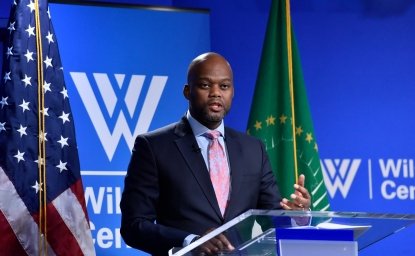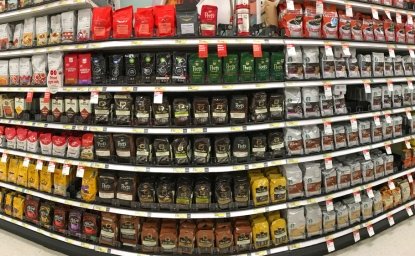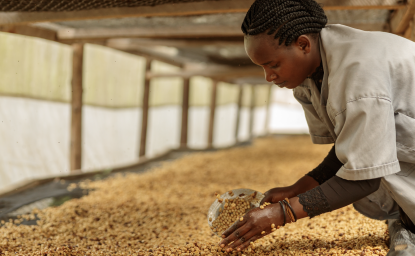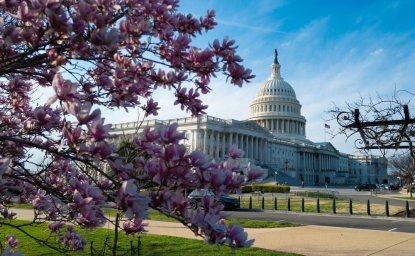This transcript has been lightly edited for length and clarity.
Oge: Welcome back to Beyond a Single Story and this season on the African Growth and Opportunity Act, AGOA. My name is Oge Onubogu, and I'm joined by my co host, Witney Schneidman. Last week, we explored the legislative processes that created AGOA. This week, we're discussing the impact AGOA has had on African businesses.
We're pleased to have two guests on this episode. First, we will hear from Jas Bedi. Jas is a Kenyan business leader and a first mover in the African textile sector. He is currently the chairman of the Kenyan Private Sector Alliance and current vice chair of the East Africa Business Council.
Following our conversation with Jas, we spoke with Vanessa Adams. Vanessa is the CEO and founder of Level 4 International, a business consultancy supporting companies to navigate global supply [00:01:00] chains. Vanessa has spent nearly two decades working to boost agricultural productivity, expand international trade, facilitate investments across Africa, and help companies utilize AGOA trade preferences.
And now we're glad to bring you our conversation with Jas and Vanessa.
Jas, we are so glad to have you on the show. You've been engaged in Kenya's export sector for over three decades now, providing a unique perspective from which to approach this conversation. Tell us, how have you been engaging with AGOA over the years?
Jas: Oge, it's been a journey. 17th May 2000, Kenya was the first country, as soon as AGOA was announced, we were the first country who signed up.
And the second country that came on board was on a day later, that was Mauritius. And, uh, we've been exporting strong enough volumes into the US right now, we are the largest exporter out of the region, sub [00:02:00] Saharan Africa region, AGOA accredited countries. That, uh, our exports, uh, last year were $470 million.
The year before there were $540 million. We had a dip. Our dip was 11%. But the rest of the world, the dip was 17% and going up to 21%. So I think, uh, if you really look at that, our dip was smaller than the rest of the world. And that was strongly, mainly because post covid, there was a huge demand for the entire world.
There was not enough product in the US. Inventory levels were very high and everybody, including Bangladesh, Vietnam, China, everybody did well post-COVID. And then there was this big glut and the bigger economies actually had a pain of 21 percent of their order book went down. Lots of inventory in the US so that is just about correcting now. And as it is correcting, we in Kenya were really looking forward to increased business. We can see people talking. Uh, yes, but the big clock is ticking on 30th September 2025, which is [00:03:00] about 10 months from now, just over 10 months from now, AGOA will expire and we are hopeful that it will get renewed in this lame duck session between now and 20th of January.
We have a new sheriff in town. Let's take it from there. So yeah, there's a lot of promise. Investment continues to happen in Kenya. I know of other factories, big boys who are brought into Kenya. Uh, like the North face and they're all building a new capacity, new factories. So they're all coming into Kenya.
So it's a shame that we're only doing half a billion because we should be doing more than a 2 billion, maybe 5 billion. And that's the new target. And I talked to his excellency, the president of Kenya, and I told him shame on us. You know, we are just under half a billion in exports and look at Bangladesh, they're doing 42 billion, out of which 70 percent of their business is, um, is Europe because they're duty free to Europe.
And, uh, they're not duty free to the US, but still they're doing 6 billion to the US, [00:04:00] which is still a sizable number. We should be actually doing 30 percent of that 6 billion, which to me is a big possibility.
Witney: Jas, Jas, how does the uncertainty over AGOA extension impact on you?
Jas: Well, like I said, for Kenya, we are, I think we are cautiously optimistic.
That's the right word. And the reason I say that, uh, the earlier Trump, um, administration had initiated an after year discussion with Kenya. And, uh, we were actually embarking on that FDA discussion. And then, of course, in the Biden administration, uh, the FDA discussions were moved to a strategic trade and investment partnership agreement, which is STIP, as you know.
So we have more or less agreed on lots of issues, uh, on the STIP. We are having one or two issues that we really, uh, Are uncomfortable with me is with us. I think it's to do with labor and things like that. But uh, [00:05:00] So like i've always said that kenya was always banking that we have an insurance If AGOA doesn't come through, we will either have an FTA agreement or we'll have a STIP agreement, but we'll probably be the only country on the continent, which is what the US would want to showcase to the rest of the continent. And we've done, we've tried it with Kenya. It works with Kenya. It can work with you. And I'm, and I don't think the US is wrong in thinking the way they are thinking, because they're looking at 25 years of AGOA. What have we attained? What have we done?
Have we been successful in reorganizing supply chains, which to a certain degree, yes, they have. They're looking at how can we also benefit from a more reciprocal agreement, uh, not a one sided agreement. And, uh, I don't think they're wrong in that agreement, uh, in their understanding, but I still think we need to build a lot of capacity on the continent.
We've just signed as Kenya, we've signed an EPA with Europe and they will get market access. into Africa or into Kenya duty free [00:06:00] in 2025. But if you look at what are we importing from Europe and what are we importing from the US 82 percent of that book is duty free anyway, because we're only importing machinery, raw material, which is coming in at zero tariff.
So it wouldn't make a big difference. So, but giving it a delayed entry or a symmetry into this market, uh, I think will be a sign of goodwill. And yes, we have done it with Europe, and maybe we could also do it with the US
Witney: there's a debate here in Washington about, you know, renewal versus modernization.
And, you know, one, one train of thought says just, just renew the legislation as it is, as soon as possible. Other people say, no, we need, we need to modernize it. We need tax incentives to get more US investment. We need to extend the review period so it's not an annual. Just curious about your thoughts on, uh, on, on that debate and how we can [00:07:00] make AGOA more impactful?
Jas: you know, to set up textile mills, five, seven, 10 year windows are not large enough because the investment value is huge.
But more importantly, I think we tend to forget that the most important person should be the buyer, because at the end of the day, the buyer determines. Who is going to do what and where those supply chains are going to get organized from. You saw how successfully PVH entered into Ethiopia and they made sure there were 30 or 40 other factories that joined them in their, in their pursuit of production in Africa.
And then of course, when AGOA was removed, all those factories struggled, a lot of them relocated, a lot of them went back home. Some are still struggling. So legislation is key. That's my point. And if you look at what happened in Uganda, where I have my own investments, uh, January 1, 2024, we were removed from AGOA.
I did a 40 million investment. And overnight, my business went to zero in [00:08:00] Uganda because of the LGBTQ legislation. And going back to your question, so what should we do now? Should we just do a straightforward renewal or should we change it or modernize it? I think in my opinion, a straightforward renewal is what is required, but we should stay focused on our goals.
And if our goal is to reorganize supply chains, if our goal is to make sure that we see investment on the continent. Maybe this time around, we should invent incentivize the buyer, anybody who buys a hundred percent made in Africa, uh, label, and, uh, he could be given a 5 percent tax rebate in the U S and that's when you'll start seeing investment because the buyer starts forcing the buyer forced all these by all these factories into Ethiopia, one buyer, PVH, and you can imagine if all the buyers start saying, guys, we want to buy from you, but we want a hundred percent African source.
Then you start saying investment. Otherwise, What is going to happen is more of the same [00:09:00] and more of the same is what 70 percent of that export revenue goes back to China. And I think that's where the fine line decision is that how much China or how little China and that really is the bigger, uh, biggest elephant in the room.
But to redefine that. Uh, angle. I think if the buyer is given that opportunity that he should write on the rules of origin, that this content is 35% value added, 55% value added, or 75% value added, and then you start getting different tax breaks not given to the, the African manufacturers, but given to the buyer.
So the business has to be market driven and it cannot be supply driven. And anything that we, any legislation that we put on on the supply side will be supply driven. Legislation, which will fail because it's got to be pull and not push. So
Witney: if you had a magic wand, being the businessman that you are looking at the US market, what would you like to see [00:10:00] that's not happening now to increase the volume coming from your businesses and from Africa more generally to the United States?
Jas: Well, like I said, for the US right now, uh, I would let the status quo, uh, stay because we haven't really got the capacity of, of the value chain and the third country public provision must stay.
But I would really, if I had that magic wand. I would want to spur investment and investment can be spurred, has been spurred, and it was successfully done in Ethiopia, like we saw with one customer. Let's this time round, let's give that incentive to the US buyer where he should start getting some incentive to a 100 percent localized, originalized African supply chain.
Oge: Thank you so much, Jas, uh, for the perspectives that you've shared with us today. See, I have actually learned so much from this conversation. I have, I have learned so much from having this, [00:11:00] this discussion with you, you know, the, the reality that yes, global dynamics are changing, but as these change, really looking at how we strengthen the partnerships that we have, that exist and thinking about areas where we can make things better.
And I think most importantly, How we tell the story matters, how we tell the story matters. So thank you so much for spending this time with us today. Really appreciate it.
We'd like to thank Jas Bedi again for sharing his perspectives and experience with us. Now, we're pleased to transition to our conversation with Vanessa.
Vanessa, we are delighted to have you on this show today. And just also want to mention that Vanessa was a participant at our AGOA civil society and organized labor forum that we hosted in July of 2024.
Witney: Just let me, uh, uh, add my [00:12:00] appreciation to you, Vanessa, for being here. Your experience, uh, in Africa working under AGOA is like, uh, legendary.
You work at the West Africa trade hub, your work in East Africa. So we look forward to this conversation.
Oge: So Vanessa, why don't we open this up? Can you tell us a little bit about your experience working with businesses across West and East Africa?
Vanessa: Yeah, I was very fortunate to spend 10 years in West Africa.
Um, I actually, um, Even before I joined the West Africa trade hub, I was living in Mali and I worked on, um, the AGOA third country fabric documentation and AGOA trainings in Mali, but I had the opportunity to work with weavers and, um, textile producers, even in rural Mali. So this AGOA conversation has a lot of meaning beyond.
Uh, the legislative frameworks when I came into West Africa, there was really a great interest across all of [00:13:00] the 21 countries that we covered at the West Africa trade hub to understand AGOA. We set up AGOA centers in a number of countries. Um, provided AGOA trainings, but even expanded beyond that to really increase the capacity of companies to increase trade and investment, which has formed, um, over a number of years into what's now called Prosper Africa and what's now become the Africa Trade Investment, which is a Pan African, um, facility. So I think, you know, AGOA has really evolved and morphed and changed and grown since I've been involved.
Witney: Vanessa, let me ask you about Mali, uh, cause I think you, you brought up something quite interesting. You know, we have Mali today, which is not in AGOA, but the Mali that you worked on, you just described reaching, uh, rural women to train them on, uh, the manufacturer of apparel.
How did you reach those rural women and what was that experience like?
Vanessa: I was very pleased to be able to [00:14:00] work, uh, with the textile, um, uh, uh, association. As well as the, um, uh, stitching companies, the designers, the fashion environments, um, even some of the, the handcrafts producers, uh, who were fairly organized in Mali by the Ministry of Handcrafts and Tourism, as well as the ministry of, um, trade and investments, uh, to organizations, actually, API, the Agence de Promotion d'investissement under the Ministry of Trade. And so over the years, um, Malian companies and, and, and, um, uh, workers, you know, many of whom are working at a small scale and quite independently, but they were very eager, um, to be able to participate in AGOA, trade with the US, um, understand international markets, I even gave an AGOA training in Guinea Bissau, Wiitney, to tell you how far out, um, I've been. [00:15:00] Guinea Bissau was AGOA eligible as well. And, uh, I, I, I, I was fortunate to, um, to be able to, to see the incredible handcrafted weaving, hand weaving of Guinea Bissau. So it's a, it's a regional market with incredible talent, um, and a lot to, to provide inspiration.
Witney: I think you touched on a very important point because often, you know, we see small export numbers from places like Guinea Bissau and maybe Mali, hundreds of thousands, low millions, but I think what you're saying is that actually the numbers Sort of belie the numbers of people who are actually impacted by AGOA and, and receive training.
And that's often lost, uh, when we look at these numbers. So thanks for, um, illustrating that.
Vanessa: Um, but that's a challenge I think for, for most African products and, and what has led us to, To be able to create industry associations like the Global Shea Alliance, um, or the African Cashew Alliance, which give more visibility and, um, [00:16:00] and, you know, facilitate more investment in, uh, value addition.
And that's something which I think AGOA, um, as we would spend a lot of time, um, As you know, the US trade Representative's Office talking about, is there such a thing as a go at graduation? What does that mean if country companies are still exporting commodities and they don't have the capacity for value creation, uh, in country and we're still developing, uh, investment strategies, um, uh, for investors to come.
Oge: Very often when we talk about AGOA here on the US side, we always talk about how it benefits Africans or African communities or African businesses. We want to hear more about how this benefit benefits US businesses. Could you share your perspectives on how US companies are sourcing from African companies and what the benefits are on both sides.
Vanessa: I've seen initially, I think people were looking in a very linear fashion at those trade arrangements and over the years we've dug deeper and deeper to be able [00:17:00] to Broaden, um, the focus trade and exchange missions have been really critical to companies growing their, um, design capacity, the diversification of their sourcing of raw materials, doing ventures, uh, in terms of brought in investments and, you know, there are even.
Uh, investments, which were extensive in Ethiopia, for example, which unfortunately went through a, you know, a few years of absence from eligibility to AGOA, but who, um, Ethiopia, the government actually invested heavily in agro industrial parks to be able to, uh, Host more efficient stitching facilities and actually had investments from a number of different countries supplying US buyers, and I was at a US buyers conference once in Ethiopia with all kinds of discussion between US companies sourcing from Ethiopian joint ventures, which had a number of other [00:18:00] partners, maybe some from Turkey or other countries. Others from South Asia, other countries who had come and invested in Ethiopia and then were sourcing raw materials from around the world and supplying to US markets.
So I think it's, AGOA has, um, brought together a very complex, diverse, disparate supply chains, um, in order to grow the African capacities and, um, meet US market expectations. And also, um, uh, you know, people think in Africa that the US is like a market, but we, when you live in the US, you know how different markets are in the US, right? Um, whether, even within a certain city, you can have, you know, your A, B, C, D stores, for example. For TJ Maxx or, or, you know, um, um, some, um, uh, even like Walmart, right. They have [00:19:00] different products and different stores or Costco. So it's, it's really, um, very hard for. African suppliers to understand the US market right off the bat, and it takes quite a bit of back and forth on both sides to be able to get products right, labeling right, um, and, uh, the pricing to be consistent also and right, and deliveries to be on time, communications to function, um, so many different variables.
Oge: Thank you so much, Vanessa.
See, we are, you know, having conversations now about AGOA renewal, um, and the prospects for this, given that it's set to expire next year. Now we know that reauthorization is priority. In your view, since you've been at this for quite some time, what are your perspectives on where you see AGOA moving to in the future?
Reauthorization is priority, but how would you like to see this initiative get or this program [00:20:00] become modernized? What are some aspects or new areas or new, um, New ideas that you think could be incorporated into building this agoa of the 21st century?
Vanessa: I, I think Agoa can, um, uh, and should, uh, subsume the GSP product list.
Um, uh, you know, when GSP, the generalized system of preferences existed on its own and had authorization, it was the, a Agoa 2000 products plus 4,500 or so products on the generalized system of preferences. GSP. Without that, it's much more a weaker facility. So I think we need to go back to the original intentional list of duty free and um, and, and quota free access for at least 6, 000 products, all of which should be eligible for increased trade and investment.
That's a starting place. So I think we need to be really bold, really aggressive, um, [00:21:00] and add more financial. Um, tools to, to, um, decrease the risk of getting trade started. Um, many companies take a year to two years to three years to move to new destinations, new, new sourcing origins. Uh, and a lot of people expect those trades to be, Movement, uh, trade to, to go very quickly, but when you look at it case by case, you know, deal by deal case, um, and those, uh, uh, timelines are, are much more extensive than people want to believe by the time, um, you do product samples, you send and you get tests done and you validate that factories meet all of the requirements.
Uh, and then you start to, to issue purJase orders and you do sourcing and you have to source all your raw materials from, you know, 10 different countries and go into production. So we have to be proactive, uh, think long term, think [00:22:00] on, um, multi year trade agreements, which can last and can be very comprehensive.
Oge: Vanessa, you know, as we hear you speak, you, you paint a complex picture, but, you know, The picture is complex, but it is possible and we have to be proactive as you said, um, to get things done. Trade is about building relationships and we have to be committed to being in it for the long haul. So really thank you for sharing these thoughts with us today.
Witney: Absolutely. Very much enjoyed the conversation and look forward to, uh, watching your work and partnering with you as you work to bring the US and Africa more closer together. Commercially,
Oge: thank you so much. It's really a pleasure. Thank you for joining us for this episode of Beyond A Single Story. We'll be taking a short break over the holiday period and begin releasing new episodes again in January.
In the meantime, keep an eye on your podcast feed for a bonus episode with Jas Bedi, going deeper into many of the [00:23:00] topics we discussed today. As always, a special thanks to the production team that made this series possible. This episode was produced by Aaron Stanley and Nathaniel Oakes. Technical assistance was provided by Sharona Harris, and editing was done by Brian Prevost. The views expressed by guests of the podcast are their own and do not necessarily represent the views of the Wilson Center Africa program. The Africa program is part of the Wilson Center, a congressionally chartered think tank that provides insights on global affairs to policymakers and the public through deep research, impartial analysis, and independent scholarship.
